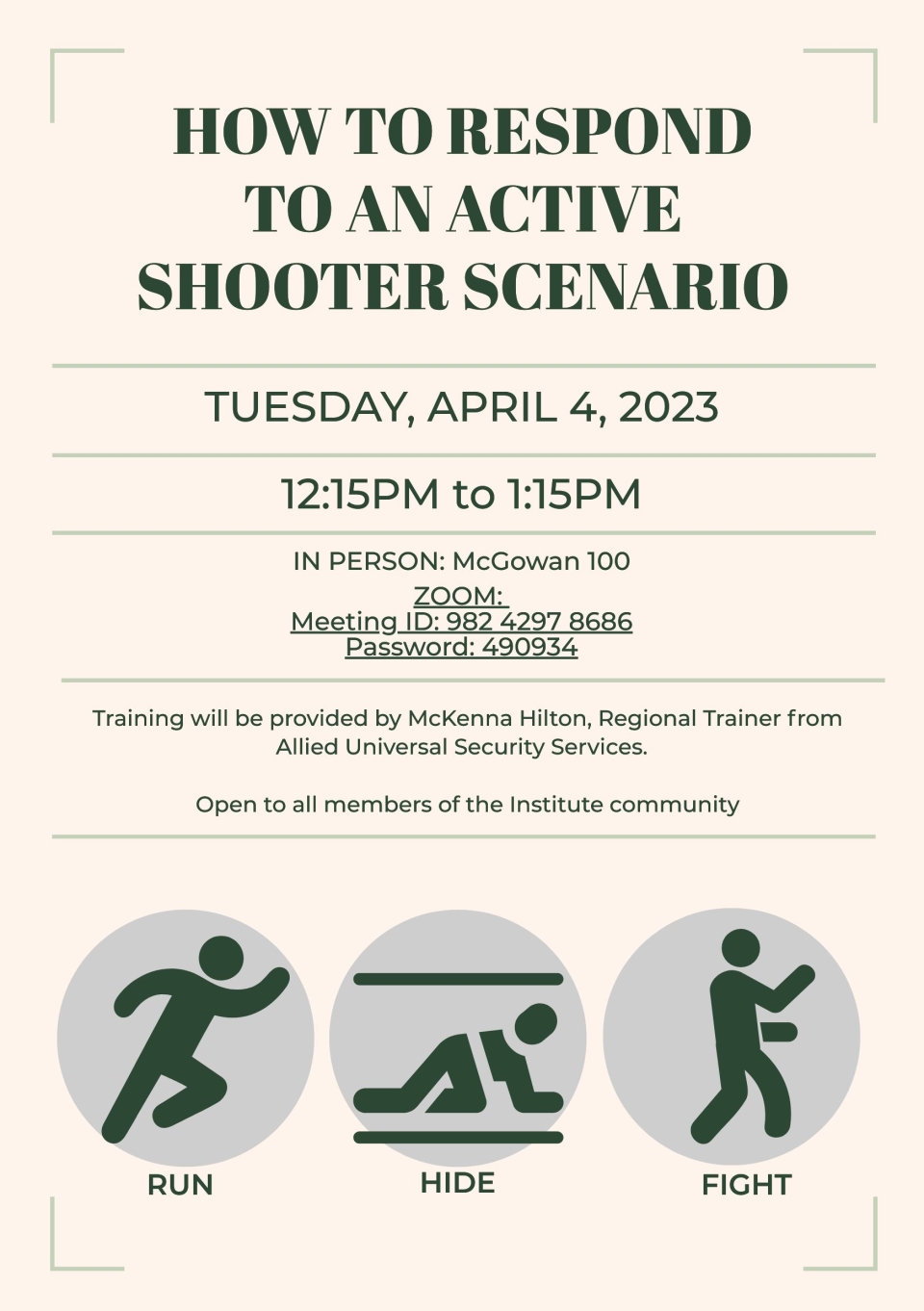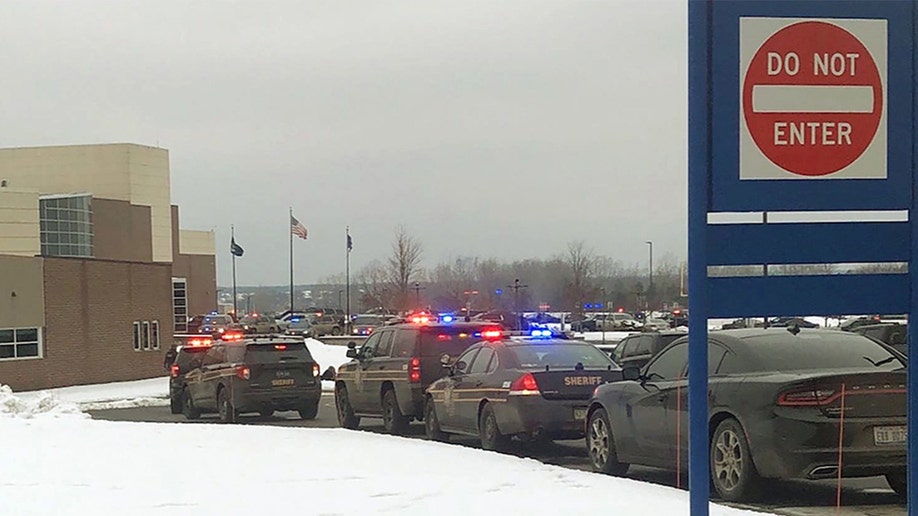So, listen up, folks. Let’s dive right into this critical situation that’s got everyone on edge. Police responding to active shooter at Michigan hospital is a headline that’s making waves across the globe. This isn’t just another news story; it’s a reminder of how fragile safety can be, even in places where we expect the utmost security—like hospitals. The events unfolding in Michigan have sparked conversations about gun control, emergency preparedness, and the role of law enforcement in protecting public spaces. So, buckle up, because this is one story you don’t want to miss.
This incident has sent shockwaves through the community, and rightly so. Hospitals are supposed to be sanctuaries of healing, not battlegrounds. But here we are, dealing with an unprecedented crisis that’s forcing us to reevaluate our priorities. As details continue to emerge, it’s crucial to stay informed and understand the implications of what happened. That’s exactly what we’re going to break down for you in this article.
Before we get into the nitty-gritty, let’s set the stage. The situation in Michigan isn’t just about one hospital or one shooter. It’s about a much larger issue that affects us all. From understanding the timeline of events to exploring the measures being taken to prevent future incidents, this article will give you a comprehensive look at the situation. And hey, if you stick around till the end, you’ll find actionable insights that might help keep you safer in unpredictable times. Now, let’s jump into the details.
Read also:Rick Lagina Loss The Untold Story Of A Treasure Hunters Journey
Understanding the Active Shooter Situation in Michigan
Alright, let’s talk about the elephant in the room. The phrase “active shooter” sends chills down anyone’s spine, and for good reason. When police are called to respond to an active shooter at a hospital, it’s not just a local issue—it’s a national concern. Hospitals are meant to be safe zones, but this incident in Michigan has thrown that notion into question. Let’s break it down step by step.
Timeline of Events
It all started with what seemed like an isolated incident. Reports began flooding in about unusual activity at the hospital, and before anyone could react, the unthinkable happened. The timeline of events is crucial to understanding how things escalated so quickly. Here’s a quick rundown:
- Initial reports of suspicious behavior around the hospital perimeter.
- Security personnel alerted law enforcement after confirming the presence of an armed individual.
- Police arrived on the scene within minutes, initiating a lockdown procedure.
- Chaos ensued as patients, staff, and visitors scrambled for safety.
Each of these steps highlights the rapid response required in such situations, but also the challenges faced by first responders and hospital staff.
Role of Law Enforcement
When it comes to active shooter situations, law enforcement plays a pivotal role. In this case, the Michigan police force demonstrated remarkable efficiency in their response. They worked tirelessly to secure the area, neutralize the threat, and ensure the safety of everyone inside the hospital. But let’s be real—this isn’t just about one team. It’s about coordination, training, and preparation.
Law enforcement agencies across the country have been investing in active shooter drills and simulations to prepare for scenarios like this. The Michigan incident is a stark reminder of why these efforts are so crucial. Without proper training, the outcome could have been far worse.
Why Hospitals Are Vulnerable Targets
Here’s the thing about hospitals—they’re open spaces designed to serve the public. While that’s a noble mission, it also makes them vulnerable to threats like active shooters. Unlike secure government buildings or military bases, hospitals often operate with limited security measures. This creates a perfect storm for incidents like the one in Michigan.
Read also:Oracene Price The Gamechanging Token You Need To Know About
Security Measures in Hospitals
So, what’s being done to address this vulnerability? Hospitals are stepping up their security game by implementing measures such as:
- Installing metal detectors at entry points.
- Hiring additional security personnel.
- Conducting regular staff training on emergency protocols.
While these steps are commendable, they’re not foolproof. The Michigan incident proves that more needs to be done to safeguard these critical institutions.
The Human Factor
Let’s not forget the human side of this equation. Hospital staff, patients, and visitors are often caught off guard in active shooter situations. Their reactions can make or break the outcome. That’s why education and awareness are so important. Knowing what to do in the first few minutes of an emergency can save lives.
Community Impact and Public Reaction
The ripple effect of an active shooter incident extends far beyond the hospital walls. Communities are left shaken, questioning their safety and demanding answers. In Michigan, the reaction has been swift and intense. Local leaders, law enforcement officials, and healthcare providers are coming together to address the concerns of their citizens.
Public Fear and Anxiety
Fear is a powerful emotion, and it’s running high in the wake of this incident. People are understandably worried about their safety, especially when visiting hospitals or other public spaces. This fear isn’t unfounded, but it’s important to channel it into productive action. Communities need to work together to foster a sense of security and resilience.
Law Enforcement Accountability
With great power comes great responsibility. Law enforcement agencies are under scrutiny to ensure they’re doing everything possible to prevent future incidents. This includes reviewing their response strategies, improving communication with hospitals, and engaging with the community to build trust.
Expert Opinions and Analysis
Let’s bring in the experts for a deeper dive into this situation. Professionals in law enforcement, healthcare, and emergency management have weighed in on the Michigan incident, offering valuable insights into what went right and what could be improved.
Law Enforcement Experts
According to veteran police officers, the Michigan response was textbook. The quick deployment of resources and the ability to isolate the threat were key factors in minimizing casualties. However, experts also note that there’s always room for improvement. Continuous training and updated protocols are essential to staying ahead of evolving threats.
Healthcare Professionals
On the healthcare front, doctors and nurses have expressed concerns about the psychological impact of such incidents on both staff and patients. They emphasize the need for mental health support and counseling services to help those affected cope with the trauma.
Global Trends in Active Shooter Incidents
The Michigan incident is part of a larger global trend. Active shooter events are becoming more frequent, and the reasons behind them are complex. From mental health issues to societal factors, there’s no single cause. What we can do, however, is learn from these incidents and take steps to prevent them.
Data and Statistics
According to the FBI, active shooter incidents have increased significantly over the past decade. In 2022 alone, there were over 60 such incidents in the United States. These numbers are alarming and underscore the urgency of finding solutions.
Prevention Strategies
Prevention starts with understanding the root causes. Governments, law enforcement agencies, and communities need to collaborate on initiatives that address mental health, gun control, and community engagement. It’s a multifaceted problem that requires a multifaceted solution.
Legal and Policy Implications
When an active shooter incident occurs, it inevitably leads to discussions about legal and policy changes. In Michigan, lawmakers are already pushing for stricter gun control measures and increased funding for hospital security. But is this enough?
Gun Control Debate
The gun control debate is as heated as ever. Proponents argue that limiting access to firearms can reduce the likelihood of such incidents. Opponents, however, believe that more guns in the hands of responsible citizens can deter potential threats. It’s a complex issue with no easy answers.
Policy Recommendations
Policy makers are exploring various options, from enhancing background checks to implementing red flag laws. These measures aim to strike a balance between protecting individual rights and ensuring public safety. Only time will tell if they’re effective.
Personal Stories and Testimonies
Behind every headline are real people with real stories. The Michigan incident is no exception. Survivors, witnesses, and first responders have shared their experiences, providing a human perspective on the tragedy.
Survivor Testimonies
One survivor described the chaos and fear of being trapped in a hospital during an active shooter situation. Their account highlights the importance of preparedness and quick thinking. It’s a powerful reminder of the resilience of the human spirit.
First Responder Stories
First responders have also shared their experiences, emphasizing the challenges they faced in securing the hospital and aiding the injured. Their stories underscore the bravery and dedication required in such high-stakes situations.
Future Outlook and Preventive Measures
As we look to the future, it’s clear that more needs to be done to prevent active shooter incidents. The Michigan hospital situation is a wake-up call for all of us. It’s time to take action, whether that means supporting policy changes, investing in security measures, or simply being more aware of our surroundings.
Community Engagement
Communities play a vital role in preventing future incidents. By fostering open communication, promoting mental health awareness, and supporting law enforcement efforts, we can create safer environments for everyone.
Technological Advancements
Technology can also be a game-changer in this fight. From AI-powered surveillance systems to mobile apps that alert users to potential threats, innovation is paving the way for a safer future.
Conclusion: What You Can Do
Alright, we’ve covered a lot of ground here. From understanding the timeline of events to exploring the broader implications of active shooter incidents, this article has given you a comprehensive look at the situation in Michigan. But the story doesn’t end here. It’s up to all of us to take action and make a difference.
Here’s what you can do:
- Stay informed about active shooter incidents and their causes.
- Support initiatives aimed at improving hospital security and emergency preparedness.
- Engage with your community to promote safety and awareness.
Remember, every action counts. Whether you’re a healthcare professional, a law enforcement officer, or just a concerned citizen, you have a role to play in preventing future tragedies. So, what are you waiting for? Let’s make the world a safer place, one step at a time.
Call to Action: Share this article with your friends and family. The more people who are aware of these issues, the better equipped we’ll be to tackle them. And don’t forget to leave a comment below—your thoughts and opinions matter!
Table of Contents
- Understanding the Active Shooter Situation in Michigan
- Why Hospitals Are Vulnerable Targets
- Community Impact and Public Reaction
- Expert Opinions and Analysis
- Global Trends in Active Shooter Incidents
- Legal and Policy Implications
- Personal Stories and Testimonies
- Future Outlook and Preventive Measures
- Conclusion: What You Can Do


